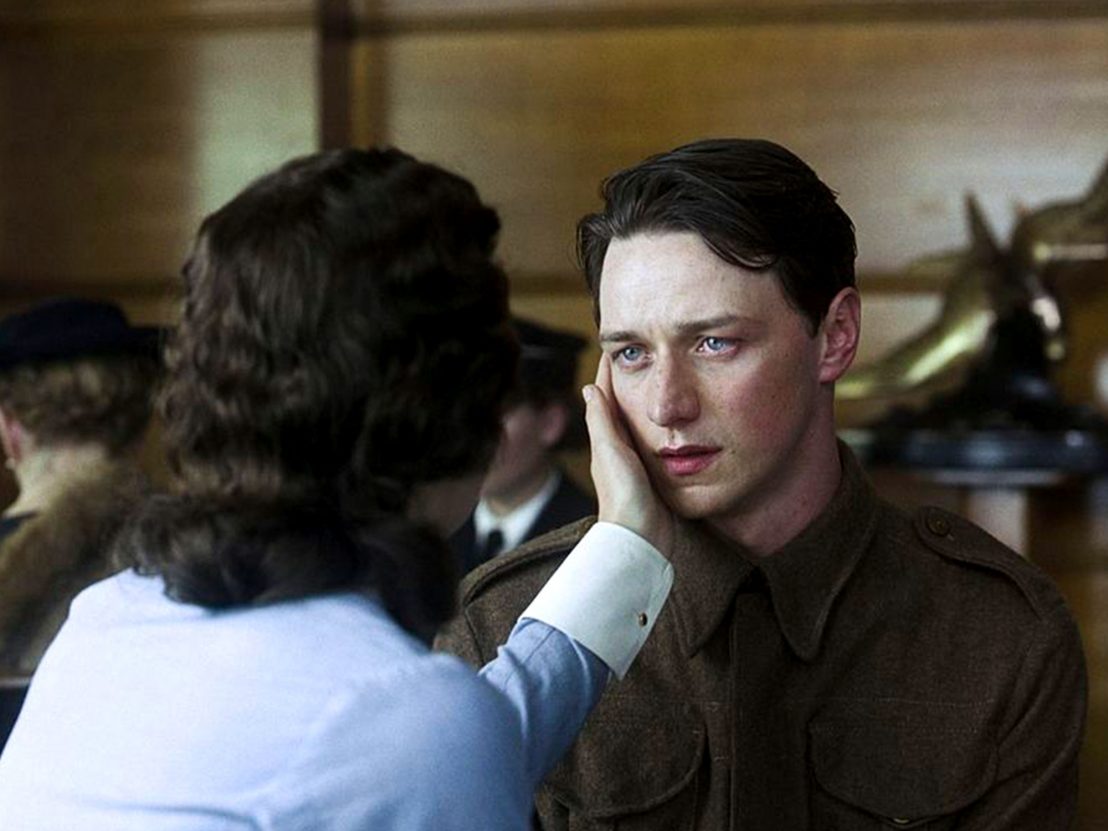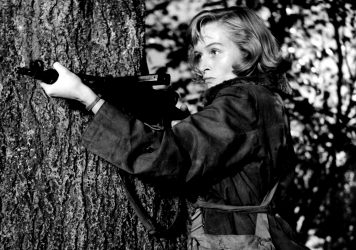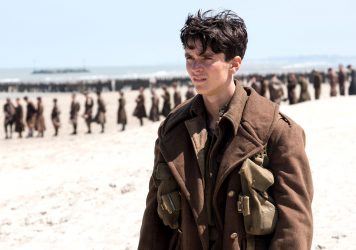
Animal figurines are lined up in a row, as if they are following a ray of light streaming in from the window. They are found to lead up to a giant 13-year-old Briony Tallis, her face obscured as she is furiously typing away at her desk. The staccato tapping of her typewriter leaks into the piano keys of Dario Marianelli’s moody score and Atonement begins.
Ten years on from this major adaptation of Ian McEwan’s novel, and with director Joe Wright revisiting World War Two in his next film, Darkest Hour, it seems as good a time as any to revisit Atonement. A story of a young couple torn apart by fate, war and a little girl’s misunderstanding. The emotional punch doesn’t come from the devastating romance, the false accusation or even the war backdrop but from the sound, or lack thereof.
The transition at the beginning of the film is not just a clever piece of sound mixing, but a reference point for Briony’s restlessly imaginative character. Wright conveys the narrative not through dialogue, not through the acting but through the soundtrack. Whenever we hear the typewriter through the rest of the film, we know it means Briony. It means her lies.
Guillermo Del Toro once insightfully observed that, “the look of a movie is a table of four legs. One is of course cinematography, but the other three are wardrobe, set production design and direction.” Continuing this inspired line of thought, it’s fair to say that the emotion in a movie stands on acting, music, editing and dialogue. When one falters, the emotional impact is diminished. Wright seamlessly ties in all of these elements to contribute to the emotional arc at the forefront of every frame.
A perfect example of this is the scene in which Robbie (James McAvoy) realises he gave Briony (Saoirse Ronan) the wrong note to pass on to Cecelia (Keira Knightley), handing over an anatomically indulgent version rather than the formal one intended. Wright states on the director’s commentary that, “one of film’s greatest assets is its potential for rhythm.” Rhythm not only established by the sound, but its cooperation with editing and movement.
When Robbie first calls to Briony from the distance, Wright leaves us waiting in real-time for her to reach him and before he passes over the fatal letter. This long pause is then counteracted by the speed in which she runs away with it, and the familiarly rapid staccato notes begin to play. Through the music Wright is warning us that a pivotal point in the film is coming up. We are reminded of the girl’s restless imagination and the foreboding danger of colliding it with something so adult as an erotic love letter.
And so, the unfortunate series of events leading to the separation of Robbie and Cecelia are put into place. All stemming from a “fanciful” girl not understanding what she sees. We begin to hate the sound of the typewriter, Briony’s staple sound and all it represents. The childish fiction has become cruel lies. Her capricious words are death sentences. In turn, we detest the premise of storytelling as a whole, and the storyteller along with it. Wright beautifully manipulates our emotions and riles them up into a frenzy of hatred towards a little girl.
In a pivotal scene at the very end of the film, an elderly Briony (Vanessa Redgrave) decides to finally tell the truth and reveal the artifice in her story. As opposed to the character’s introduction, her face dominates the screen as if looking directly at the audience. While she speaks, her definitive sound is replaced by the ‘Denouement’ track. Literally meaning the finale, it consists of long, low, sorrowful notes in contrast to the rapid staccato of the piano.
Briony is seeking atonement. Replacing her erratic fascinations with the bleak truth. The sorrowful sounds of her redemption brings the audience face to face with their accusation as this decrepit figure asks, “What sense of hope or satisfaction could a reader derive from an ending like that?” Now, the truth is unwelcome because it holds the tragic injustice of reality.
The interplay of all the music with the themes of the film demonstrate a far more potent, visceral involvement that exercises the tools of filmmaking to their fullest. On a level playing ground, the rhythm of the music, editing and acting all coalesce to project the emotional impression of the scene onto the audience. Atonement is an orchestral symphony, with the director as the conductor stringing all the elements of filmmaking into a harmony of cinema.
Published 22 Jul 2017

Joe Wright’s World War Two weepie is a near masterpiece that only lacks the substance of great performances.

By Lena Hanafy
These films show the different ways women joined the war effort, often away from the home front.

Christopher Nolan’s breathtaking historical opus attempts to give the viewer a taste of what war actually feels like.